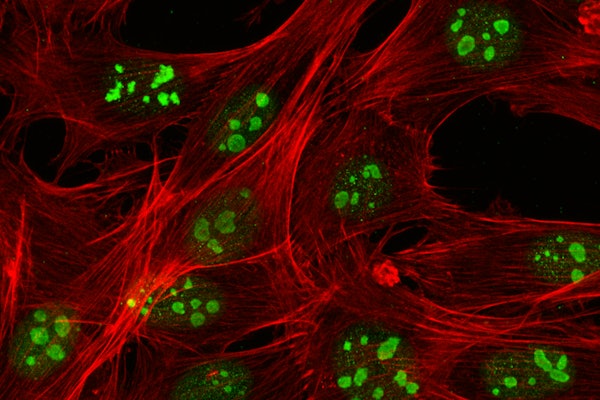カリフォルニア大学サンディエゴ校の研究者が、新しい人工知能誘導型アルゴリズムを用いて、2つの類似した小児炎症性疾患を区別できる初の診断ツールを作成しました UC San Diego researchers have created the first diagnostic tool able differentiate between two similar pediatric inflammatory conditions, using a novel artificial intelligence-guided algorithm
2022-09-20 カリフォルニア大学サンディエゴ校(UCSD)
全米の科学者チームが、MIS-CとKDの両方を診断する機械学習アルゴリズムを作成した。
簡単な検査結果と、医療機関やクリニック、病院なら誰でもできる身体検査の5つの特徴を用いて、小児のMIS-CとKDを90%を超える精度で鑑別する医師支援ツールを作成した。
<関連情報>
- https://today.ucsd.edu/story/how-to-tell-the-difference-between-kawasaki-disease-and-mis-c
- https://www.thelancet.com/journals/landig/article/PIIS2589-7500(22)00149-2/fulltext
米国における小児の多系統炎症症候群と川崎病の診断のための機械学習アルゴリズム:レトロスペクティブモデル開発および検証研究 A machine-learning algorithm for diagnosis of multisystem inflammatory syndrome in children and Kawasaki disease in the USA: a retrospective model development and validation study
Jonathan Y Lam, Chisato Shimizu, Prof Adriana H Tremoulet, Emelia Bainto, Samantha C Roberts, Nipha Sivilay, Michael A Gardiner, John T Kanegaye, Alexander H Hogan, Prof Juan C Salazar, Sindhu Mohandas, Jacqueline R Szmuszkovicz, Simran Mahanta, Audrey Dionne, Prof Jane W Newburger, Emily Ansusinha, Prof Roberta L DeBiasi, Shiying Hao, Xuefeng B Ling, Prof Harvey J Cohen,Shamim Nemati, Prof Jane C Burns, the Pediatric Emergency Medicine Kawasaki Disease Research Group ,the CHARMS Study Group
Lancet Digital Health Published:October, 2022
DOI:https://doi.org/10.1016/S2589-7500(22)00149-2

Summary
Background
Multisystem inflammatory syndrome in children (MIS-C) is a novel disease that was identified during the COVID-19 pandemic and is characterised by systemic inflammation following SARS-CoV-2 infection. Early detection of MIS-C is a challenge given its clinical similarities to Kawasaki disease and other acute febrile childhood illnesses. We aimed to develop and validate an artificial intelligence algorithm that can distinguish among MIS-C, Kawasaki disease, and other similar febrile illnesses and aid in the diagnosis of patients in the emergency department and acute care setting.
Methods
In this retrospective model development and validation study, we developed a deep-learning algorithm called KIDMATCH (Kawasaki Disease vs Multisystem Inflammatory Syndrome in Children) using patient age, the five classic clinical Kawasaki disease signs, and 17 laboratory measurements. All features were prospectively collected at the time of initial evaluation from patients diagnosed with Kawasaki disease or other febrile illness between Jan 1, 2009, and Dec 31, 2019, at Rady Children’s Hospital in San Diego (CA, USA). For patients with MIS-C, the same data were collected from patients between May 7, 2020, and July 20, 2021, at Rady Children’s Hospital, Connecticut Children’s Medical Center in Hartford (CT, USA), and Children’s Hospital Los Angeles (CA, USA). We trained a two-stage model consisting of feedforward neural networks to distinguish between patients with MIS-C and those without and then those with Kawasaki disease and other febrile illnesses. After internally validating the algorithm using stratified tenfold cross-validation, we incorporated a conformal prediction framework to tag patients with erroneous data or distribution shifts. We finally externally validated KIDMATCH on patients with MIS-C enrolled between April 22, 2020, and July 21, 2021, from Boston Children’s Hospital (MA, USA), Children’s National Hospital (Washington, DC, USA), and the CHARMS Study Group consortium of 14 US hospitals.
Findings
1517 patients diagnosed at Rady Children’s Hospital between Jan 1, 2009, and June 7, 2021, with MIS-C (n=69), Kawasaki disease (n=775), or other febrile illnesses (n=673) were identified for internal validation, with an additional 16 patients with MIS-C included from Connecticut Children’s Medical Center and 50 from Children’s Hospital Los Angeles between May 7, 2020, and July 20, 2021. KIDMATCH achieved a median area under the receiver operating characteristic curve during internal validation of 98·8% (IQR 98·0–99·3) in the first stage and 96·0% (95·6–97·2) in the second stage. We externally validated KIDMATCH on 175 patients with MIS-C from Boston Children’s Hospital (n=50), Children’s National Hospital (n=42), and the CHARMS Study Group consortium of 14 US hospitals (n=83). External validation of KIDMATCH on patients with MIS-C correctly classified 76 of 81 patients (94% accuracy, two rejected by conformal prediction) from 14 hospitals in the CHARMS Study Group consortium, 47 of 49 patients (96% accuracy, one rejected by conformal prediction) from Boston Children’s Hospital, and 36 of 40 patients (90% accuracy, two rejected by conformal prediction) from Children’s National Hospital.
Interpretation
KIDMATCH has the potential to aid front-line clinicians to distinguish between MIS-C, Kawasaki disease, and other similar febrile illnesses to allow prompt treatment and prevent severe complications.
Funding
US Eunice Kennedy Shriver National Institute of Child Health and Human Development, US National Heart, Lung, and Blood Institute, US Patient-Centered Outcomes Research Institute, US National Library of Medicine, the McCance Foundation, and the Gordon and Marilyn Macklin Foundation.


